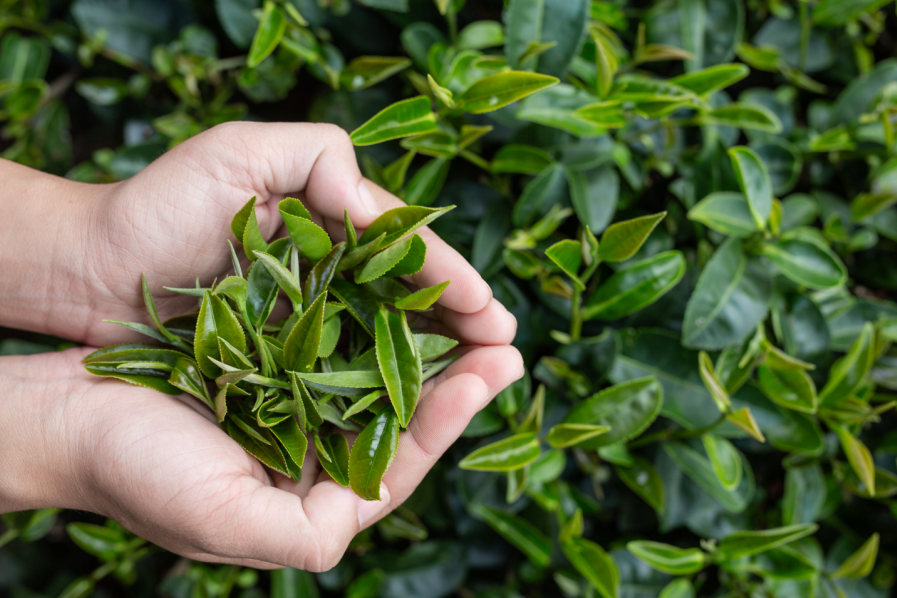
When it comes to adverse events, it’s always important to look for that silver lining. In the case of COVID-19, popularly referred to as the “coronavirus,” one of the unexpected benefits of the reaction to the pandemic has been a dramatic increase in sustainable living.
As billions of people have been asked to shelter in place, many of the typical polluting activities have disappeared virtually overnight. For instance, in China — one of the most infamous polluters and a country where quarantining began months before the rest of the world — the quarantining has caused Beijing to drop right out of the list of the 200 most polluted cities.
While big facts on city- and state-wide levels are exciting and draw more attention, though, even the Beijing numbers couldn’t have happened without millions of people making small yet significant changes. With that in mind, here are a few of the simple yet impactful ways that the coronavirus pandemic has dramatically shifted Americans towards a more sustainable lifestyle.
Rationing Resources
It doesn’t matter if you’re talking about toilet paper or toast, the quarantining mindset has forced hundreds of millions of individuals to embrace an attitude of rationing what they have.
Decreased use of food, water, toiletries, and so on has a massive effect on the environment that begins with manufacturing and transportation and often ends with a dump. This newly awakened attitude of treating your resources with respect is critical to sustainability. As such, it has been an important wake-up call for many Americans that are used to recklessly using what they have without a thought to the future.
Killing the Commute and Eating Out Less Often
The concept of “food miles” doesn’t just have to do with transporting goods to and from your local grocery store. You can also burn up that fossil fuel as you drive to restaurants for food day after day. However, being stuck at home has encouraged people around the globe to work with what they have on the homefront when it comes to eating.
While this can lead to endless meals of canned soup and ramen noodles in some cases, many have taken the opportunity to study how their food and drink affect their bodies and how they can use the occasion to eat healthier, home-cooked meals.
This focus on health goes along nicely with avoiding the packaging, food miles, and other waste associated with eating out all of the time.
In addition, the fact that millions of jobs that have shifted to remote work have dramatically reduced the number of people out on the roads in general. The lack of a commute has led to millions of fewer vehicles clogging up traffic and burning fuel at a rapacious rate — an obvious win for the environment.
Recycling and Reusing
It’s no secret that people throw things away hand-over-fist. The average American creates over 2,000 pounds of trash each year. However, when you know that you can’t necessarily head to the store to buy a new item if your existing one breaks, it tends to change your perspective on how you treat your stuff.
This survivalist attitude has encouraged Americans across the nation to recycle and reuse things — whether you’re talking about sustainable, DIY storage solutions for your new remote home office, taking the time to compost your extra food, or anything in between.
Building Towards Sustainability
Finally, while many of the things discussed so far have revolved around reusing, rationing, and conserving, there’s also the fact that the crisis has encouraged many people to start building towards sustainability as well.
Things like victory gardens have come back into vogue and many people are thinking of solar, wind, water, and other sustainable energy solutions for homes that could lead to greater self-sustainability and create less damage to the environment.
Making a Permanent Mental Shift
And there you have it. Whether you’re gardening, avoiding that daily commute, or any of the other things listed above, you’re inadvertently contributing to a more sustainable future for both yourself and the world as a whole.
However, the critical factor throughout all of this is the question of what everyone will do when everything fires up again. Once businesses reopen and entertainment resumes its usual course, will the world return to its past level of unsustainable “normalcy” or will humanity recognize the inefficiency and destructiveness of its ways?
The question isn’t rhetorical, nor is it one that can only be answered by high-minded philosophers or powerful politicians.
Sure, throughout the history of the sustainability gospel, larger companies like Subaru and Starbucks have taken the lead and hundreds of millions of dollars have been put towards education, stewardship, and preservation. But at this point, the true battle for sustainability can’t be just left in the hands of the higher-ups. It must begin on your very own doorstep.
So start thinking now about how you can maintain a sustainable lifestyle that focuses on calm, fearless, thoughtful, and determined leadership once the quarantine period ends and you can once again choose how you live day-to-day.
You may also like
If You Couldn’t Throw Away Your Trash, Could You Carry It?
Find Yourself in a Good Place: 4 Benefits of Living in the Suburbs
5 Sustainable Storage Solutions for the Home and Office
